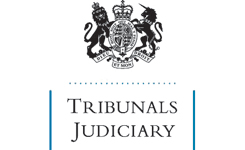|
Notes:
|
UT and CA decisions reported as [2012] AACR 32.
Information rights – whether a public authority may later rely on additional or different exemptions/exclusions from those originally stated
The complainant made a request to the Department for the Environment, Food and Rural Affairs (DEFRA) for information in relation to discussions between the previous Government and the Mayor of London about air quality. Initially the Department relied for its refusal on regulation 12(4)(e) of the Environmental Information Regulations 2004, and, having been ordered by the Information Commissioner to disclose all the information held, appealed to the First-tier Tribunal relying additionally on regulation 12(5)(b) and (d) and regulation 13. The tribunal refused to allow the Department to rely on these new exceptions as of right and declined to exercise its discretion to allow it to do so. DEFRA appealed, the complainant contending that a public authority may only rely in proceedings before the Information Commissioner and the tribunal upon the exception or exceptions specified in its reasons for refusing the request, and the Information Commissioner adopting a middle course, that while there was no right to rely on new exceptions/exemptions, a public authority could be permitted to do so at the discretion of either the Commissioner or the tribunal. The Upper Tribunal heard the case together with an appeal from the Information Commissioner where the First-tier Tribunal had decided, on the appeal of the Home Office, that the Home Office was entitled as of right to rely on new exemptions under the Freedom of Information Act 2000 and that, if it had been a matter of discretion, the tribunal would have allowed it to do so. The Upper Tribunal judge upheld the decision of the First-tier Tribunal in the Home Office case, agreeing that a public authority had the right under the Freedom of Information Act to rely on new exemptions, subject only to the case management powers of the First-tier Tribunal. In the second case, he agreed with DEFRA. Having noted that the Directive gives effect to the Aarhus Convention on Access to Information, Public Participation in Decision Making and Access to Justice in Environmental Matters (the Convention), he considered the relevant provisions of the Directive and the Regulations and two decisions of the CJEU, Case C-233/00 Commission v France [2003] ECR I-6625, and Case C-186/04 Housieaux v Délégués du conseil de la Région de Bruxelles-Capitale [2005] ECR I-3299, and concluded that they did not justify, still less require, a conclusion that was different from that which resulted from an analysis of the Freedom of Information Act. The complainant appealed, not contending that there is any provision in either the Regulations, or the enforcement and appeals provisions in the Act which are applied by the Regulations, read purely as domestic statutes, which prohibits reliance upon a new exception, but contending that permitting a public authority to rely upon a new exception before the Commissioner or the tribunal would be contrary to the underlying purpose of Council Directive 2003/4/EC which is implemented by the Regulations.
Held, dismissing the appeal and declining to refer the issue to the Court of Justice of the European Union, that:
1. the time limits for notifying a refusal and for stating the reasons for refusal (including the exception(s) relied on) are mandatory (Commission v France and Housieaux). However, considering the Directive as a whole, there are three features of the environmental information regime which are interrelated: (1) the relatively short time within which the initial decision to release, or to refuse to release (with reasons) must be made, (2) the broad scope of the review process under Article 6 of Council Directive 2003/4/EC and (3) the balance that has to be struck between the public interest in the prompt release of environmental information and the need to avoid harm to the other important public interests listed in Article 12(2) (paragraphs18 to 21);
2. the court or other legal body conducting the review under Article 6(2) is not reviewing the decision made by the administrative reviewer under Article 6(1), but reviewing “the acts or omissions of the public body concerned”. Thus, the court must consider de novo the propriety of releasing the information. Such a process is bound to discover errors and omissions in the exceptions relied upon in initial decisions, and it would be surprising, given the balancing exercise required by the Directive, if those errors were incapable of subsequent correction (paragraph 23);
3. permitting a public authority to rely on a new exception in the administrative and legal review processes under Article 6 does not deprive the person seeking the information of any effective judicial control and does not thereby destroy the effectiveness of the process. At the administrative review stage the Information Commissioner has ample power to regulate the proceedings before him, and at the legal review stage the Tribunal Procedure Rules ensure that any new exception, if it is to be relied upon, is identified at the outset of the appeal, and within a relatively short time. Any application by the public authority to rely upon a new exception made after the time limit for its grounds of appeal/response would be subject to the tribunal’s case management powers (paragraphs 26 to 28). |
